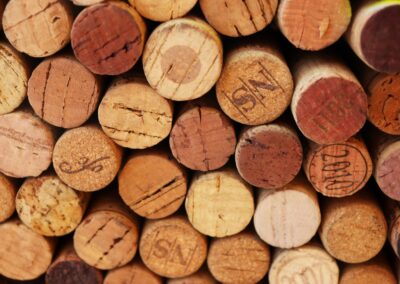Water is an invaluable natural resource, yet it is astonishing how much of it goes to waste. On average, each person wastes over 1,000L of water per week. When you consider the scale of a business, this wastage can amount to thousands of litres. It’s crucial for wedding businesses to recognise the significance of water conservation and take action to reduce their water usage. By doing so, not only can they save costs, but they can also enhance their brand reputation and lead the way for positive change within the industry.
The benefits of reducing water consumption for small businesses are substantial. Excessive water usage leads to a decline in the natural water table, disrupting hydrological systems and local wildlife. The transportation of water from reservoirs further exacerbates the issue, consuming substantial amounts of energy and requiring the construction of additional infrastructure.
By implementing water-saving practices, your business can:
- Reduce costs by effectively managing water usage.
- Develop resilience in the face of water scarcity.
- Enhance flood resilience, which can be financially burdensome if your business is affected by floods.
- Gain a competitive advantage by supplying water-efficient products and capitalising on market opportunities.
- Meet investor expectations regarding sustainability.
- Comply with government policies and legislation on corporate sustainability related to water issues.
- Meet consumer expectations for ethical consumption and environmental friendliness.
- Cut carbon emissions by reducing energy costs associated with water treatment and minimising wastewater production.
To reduce water usage in your wedding business, consider implementing the following measures:
- Replace taps with spray taps: Spray taps reduce the volume of water without compromising water pressure. Replacing toilets with dual-flush models can also result in significant water savings. These simple changes can save thousands of liters of water annually, benefiting both your business and the environment.
- Address plumbing inefficiencies: If your premises have old plumbing fixtures, you may be losing up to 20 gallons of water per day due to dripping faucets. This not only affects your finances but also contributes to wasteful water consumption. Install low-flow or spray taps and low-flow toilets to improve the efficiency of your plumbing system.
- Educate and engage your staff: Encourage every member of your team, as well as visitors, to actively participate in reducing water consumption. Conduct awareness training exercises to educate them on everyday habits that promote water conservation. This could include teaching them about the appropriate faucet running time, encouraging the use of reusable water bottles, and promoting sustainable practices in onsite laundry, dishwashing, and shower facilities.
- Harvest rainwater: If feasible, consider implementing a rainwater harvesting system. This renewable source of water can be treated and stored on-site for various business purposes. With some modifications, even urban wedding venues can benefit from rainwater harvesting, contributing to both water conservation and sustainability efforts.
Wedding businesses have a responsibility to conserve water in the workplace. By implementing water-saving practices, they can save costs, increase resilience, comply with regulations, meet consumer expectations, and reduce their carbon footprint. It is through these collective efforts that the wedding industry can contribute to a more sustainable future and protect our most valuable natural resource.


